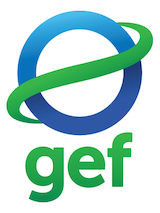Dominican Republic- Second National Communication
Project Overview
The creation of a National Communication offers countries the opportunity to contribute with technically sound studies and information that can be used for designing mitigation and adaptation measures, and project proposals that can and will help increase their resilience to the impacts of climate change. Activities generally include: V&A assessments, Greenhouse Gas Inventory preparation, Mitigation Analysis or Education, and awareness raising activities.The ultimate goal is the integration of climate change considerations into relevant social, economic and environmental policies and actions
Key Vulnerabilities identified in the Dominican Republic's Second National Communication (2009):
- Agriculture
- Water Resources
- Health
- Tourism
- Biodiversity
Project Details
Potential Adaptation Measures identified in the Dominican Republic's Second National Communication (2009):
Agriculture
- Climate scientific studies in agricultural production;
- Regionalization of crops;
- Introduction of varieties resistant to unfavorable climatic conditions;
- Improvement technologies and technological discipline in agricultural production;
- Redistribution of sowing areas between different crops;
- New techniques in agricultural production;
- Adopting new nutritional habits;
- Adaptation to new conditions as related to the integrated fight against pests and diseases in agricultural crops.
Water Resources
- The country must continue to receive economic and technical support in order to deepen its knowledge of priority objectives and support those strategies that will lead us to the desired scenario, both locally and worldwide.
Health (Malaria)
- Availability of a malaria epidemiological vigilance system, integrated and decentralized, which will allow for timely decision-making at all levels.
- An integrated and decentralized laboratory network which allows for fast and trustworthy diagnosis for an opportune and efficient treatment, based on health services.
- An integrated and decentralized entomological vigilance network which allows for information analysis for an efficient and timely vector control.
- Implementation of a health education strategy and an effective community participation, where all sectors of society would come together to optimize actions for the prevention and control of malaria.
Key Results and Outputs
- Sustainable development and the integration of climate change concerns into medium- and long-term planning
- Inventories of anthropogenic emissions by sources and removals by sinks of greenhouse gases
- Measures contributing to addressing climate change
- Research and systematic observation
- Climate change impacts, adaptation measures and response strategies
- Education, training and public awareness
Reports and Publications
Assessments and Background Documents
Dominican Republic- Second National Communication 2009 Spanish
Monitoring and Evaluation
In 1992, countries joined an international treaty, the United Nations Framework Convention on Climate Change, to cooperatively consider what they could do to limit average global temperature increases and the resulting climate change, and to cope with whatever impacts were, by then, inevitable.
Parties to the Convention must submit national reports on implementation of the Convention to the Conference of the Parties (COP). The required contents of national communications and the timetable for their submission are different for Annex I and non-Annex I Parties. This is in accordance with the principle of "common but differentiated responsibilities" enshrined in the Convention.
The core elements of the national communications for both Annex I and non-Annex I Parties are information on emissions and removals of greenhouse gases (GHGs) and details of the activities a Party has undertaken to implement the Convention. National communications usually contain information on national circumstances, vulnerability assessment, financial resources and transfer of technology, and education, training and public awareness.
Since 1994, governments have invested significant time and resources in the preparation, collection and validation of data on GHG emissions, and the COP has made determined efforts to improve the quality and consistency of the data, which are ensured by established guidelines for reporting. Non-Annex I Parties receive financial and technical assistance in preparing their national communications, facilitated by the UNFCCC secretariat.



